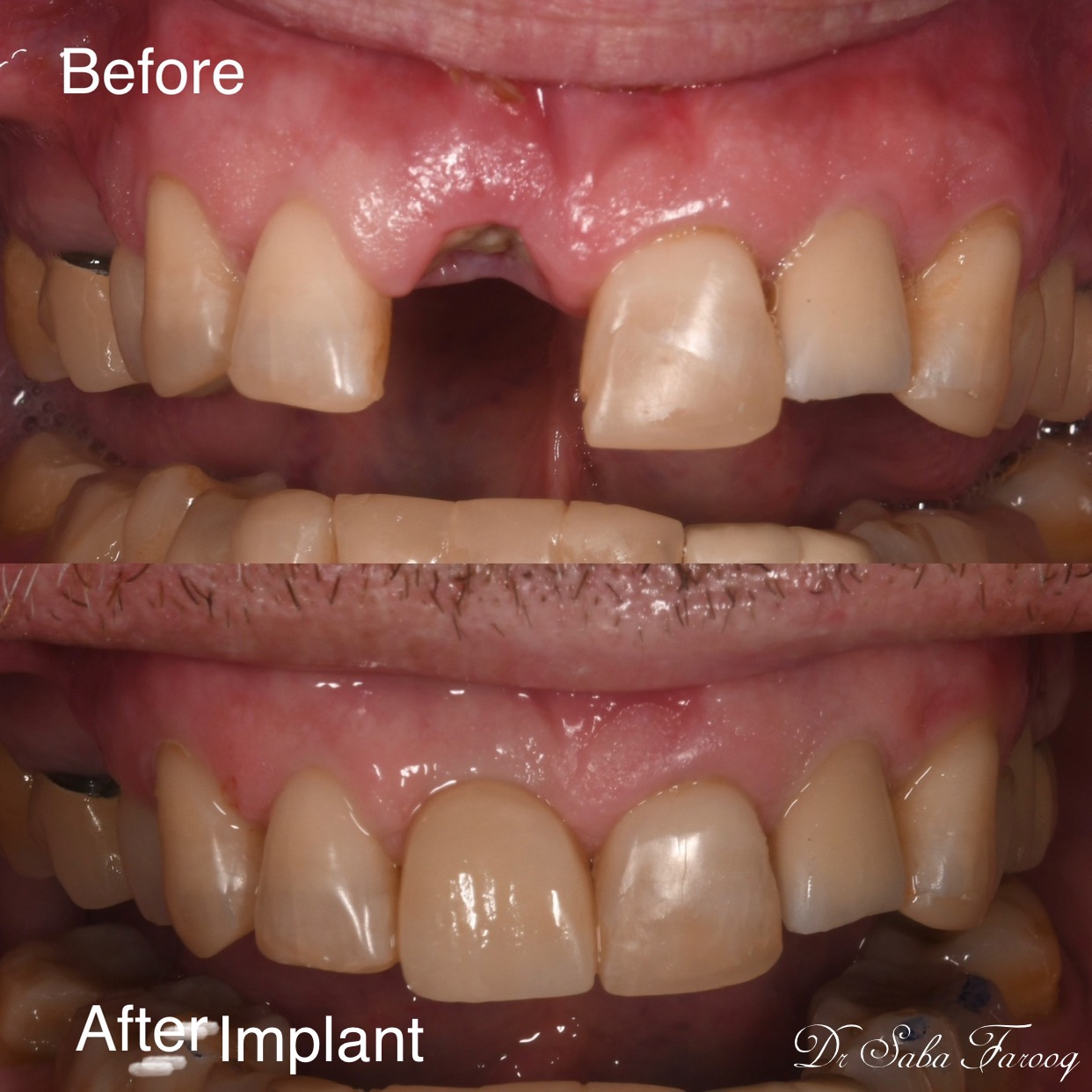Cosmetic Dentistry
Teeth Whitening
Veneers
Componeer Composite Veneers
Dermal Fillers and Wrinkle Relaxers
Implants are proving to be a very effective way of replacing teeth as they are free-standing and do not require other teeth to support them. When implants were originally invented, four to six months of healing was required for the implant to fuse to the bone. Before a porcelain crown could be attached to it. Today, new technology has enabled a crown to be placed on it immediately, in most situations.
What is a dental implant?
A dental implant is a titanium post that is inserted into the bone. A crown can then be constructed to attach to the implant to replace the missing tooth.
The procedure
In today’s rapidly advancing world of technology and medicine, implants have emerged as a transformative field with the potential to revolutionize human health and augment our capabilities. While the term “implant” may conjure images of medical devices, the scope of implants is expanding beyond the realm of healthcare. In this article, we’ll delve into the world of implants, exploring their history, current applications, and the exciting possibilities they hold for the future.
A Brief History of Implants
The concept of implanting foreign objects into the human body is not a recent development. Archeological evidence suggests that ancient civilizations were already using rudimentary dental implants, demonstrating our innate desire to improve our quality of life. It was not until the 20th century that implants truly began to flourish.
Medical Implants
Medical implants have played a pivotal role in enhancing and saving lives. Examples include pacemakers to regulate heart rhythms, artificial joints to improve mobility, cochlear implants to restore hearing, and dental implants to replace missing teeth. These innovations have significantly improved the well-being of countless individuals, enabling them to lead healthier, more fulfilling lives.
The Emerging World of Non-Medical Implants
In recent years, non-medical implants have gained popularity, showcasing the potential of human augmentation and personalization. Biohacking enthusiasts, for instance, have embraced the idea of implanting technology to enhance their physical or cognitive abilities. Subdermal RFID chips can be used for secure access, while magnets implanted in fingertips provide an entirely new sense – the ability to feel magnetic fields.
Implants in the Future
The future of implants is nothing short of breathtaking. Here are a few areas where implants are poised to make a significant impact:
1. Neural Implants: Neural implants, often referred to as brain-computer interfaces (BCIs), are on the cusp of changing the way we interact with technology. These devices could enable direct communication between the brain and computers, allowing paralyzed individuals to control robotic limbs or providing a seamless link between our thoughts and digital devices.
2. Biological Enhancements: Implants could be used to enhance our natural abilities. In the near future, we might have the option to improve our vision beyond 20/20, boost our cognitive functions, or even make genetic modifications to enhance our physical strength.
3. Longevity and Health Monitoring: Implants can play a vital role in preventive healthcare. Tiny sensors implanted in the body could continuously monitor various health parameters, providing real-time data to both individuals and healthcare professionals, helping detect and prevent diseases at an early stage.
4. Environmental Adaptation: As we face the challenges of a changing world, implants could help us adapt. For instance, subdermal implants may allow individuals to withstand extreme temperatures or filter harmful pollutants from the air they breathe.
5. Sustainability: Implants are not limited to enhancing humans. The field of conservation biology is exploring implant technology to protect endangered species and monitor ecosystems. Tracking devices implanted in animals can help gather critical data for conservation efforts.
Ethical and Social Considerations
With great power comes great responsibility, and the emergence of non-medical implants raises numerous ethical and social questions. Privacy concerns, potential misuse of technology, and the impact on equality and social divisions are among the many issues that require thoughtful consideration.
The world of implants is evolving at an astonishing pace, transforming the way we think about healthcare, human augmentation, and our relationship with technology. As we continue to explore and develop implant technology, it is essential that we approach this field with a sense of responsibility, considering the ethical and social implications. The potential to improve lives and push the boundaries of human capability is vast, but so are the challenges that come with it. The future of implants is indeed an exciting frontier, and as we navigate it, our choices and actions will shape the world to come.
Dental implants | Bacchus Marsh
Find out if you are eligible for Dental Implants today. Contact the team at Main Street Dental to book your consultation.

You’ve got a
Reason to Smile
Come and visit our dental agency or simply send us an email anytime you want. We are open to all suggestions from our clients.
The advantages of dental implants
Dental implants are comfortable, look natural, and have a tooth colored appearance. They can last a long time because they are implanted into the jaw bone and require no support from surrounding teeth. They are durable and can prevent bone loss.
The disadvantages of dental implants
Dental implants can be expensive and require oral surgery to place the implant onto the jaw bone. Some pain and swelling can be expected after the surgery.
Before and After
Dental Implants



All surgical procedures carry risks. Before proceeding, you should seek a second opinion from an appropriately qualified health practitioner.
Client
Testimonials
Proactively envisioned multimedia based expertise and cross-media growth strategies. Seamlessly visualize quality intellectual capital without superior collaboration and idea-sharing.











